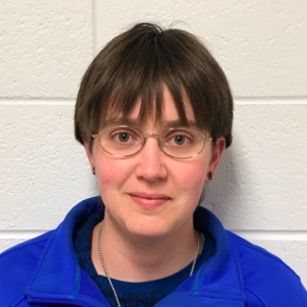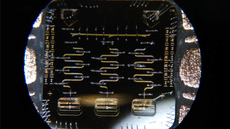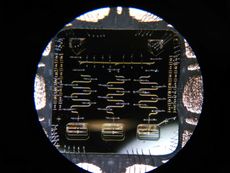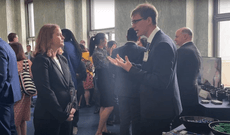Alicia Kollár
Co-PI, Co-Associate Director of Research
University of Maryland

Contact Information
- akollar@umd.edu
- Office:
PSC 2112 (Office)
University of Maryland
Atlantic Building 2207
College Park, MD 20742- Office Phone:
- (301) 405-4058
- Lab:
- PSC B0156
Additional Information
- CV:
- Alicia%20Kollar_CV_2022_Aug.pdf
- Websitee
- View Profile
- Google Scholar
- View Profile
Bio
Alicia Kollár is an assistant professor in the Department of Physics and an affiliate assistant professor in the Department of Electrical and Computer Engineering at the University of Maryland. She is also a Fellow of the Joint Quantum Institute. Kollár leads a research group that focuses on using novel coplanar waveguide lattice techniques and graph theory to design and realize microwave photonic crystals with unusual structures such as gapped flat bands and spatial curvature. They plan to combine these structures with multimode/waveguide circuit QED to engineer quantum simulators of lattice and spin models. She received her doctorate in applied physics from Stanford University in 2016.
Recent Publications
Circuit-QED Lattice System with Flexible Connectivity and Gapped Flat Bands for Photon-Mediated Spin Models
, , PRX Quantum, (2026)Realization of pure gyration coupling in an on-chip superconducting microwave device
, , PRR, (2026)A strong-driving toolkit for topological Floquet energy pumps with superconducting circuits
, , Physical Review A, 112, (2025)
Research Group
Kollár Research Group
Affiliated Research Centers
AMPED
JQI



